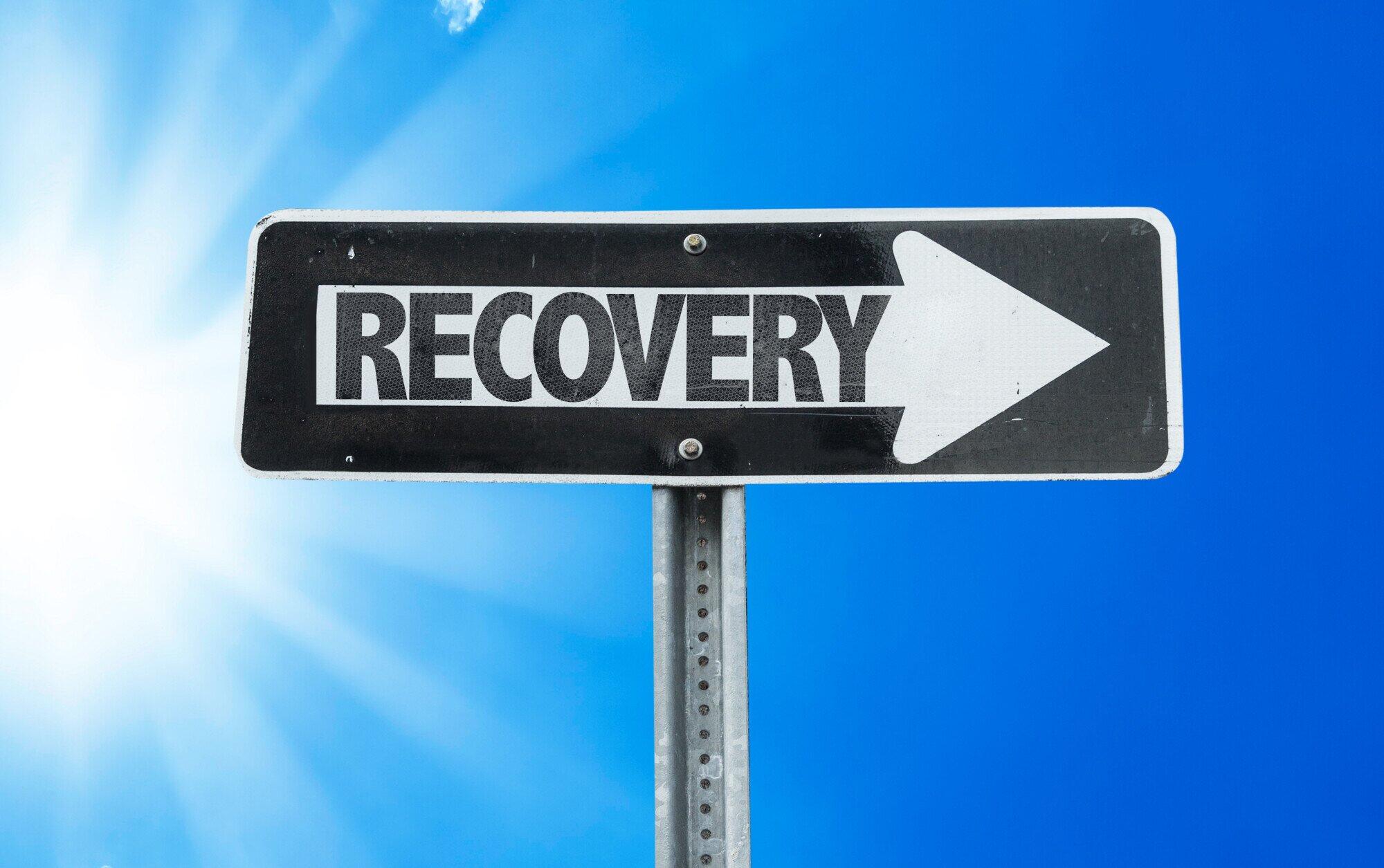Health
How IOP Programs Can Transform Your Mental Health Journey

Mental health struggles can feel overwhelming, but help is available.
Intensive Outpatient Programs (IOP) offer an effective way to manage and improve your mental well-being without requiring a stay in a hospital. These programs provide structured care, therapy, and support to help individuals regain control over their mental health.
In this article, we will explore how IOP programs can transform your mental health journey, what they offer, and why they can be the right step toward long-term recovery and stability.
What Are IOP Programs?
Intensive Outpatient Programs, or IOPs, are designed to offer therapy and support for those struggling with mental health or substance use issues without needing to check into an inpatient facility.
The main idea behind IOPs is to provide intensive care during the day and allow individuals to return home at night. This provides a balance of structured treatment and personal freedom, making it ideal for many people who are looking for a more flexible approach to recovery.
Typically, IOP programs are suitable for those who need more care than traditional outpatient therapy but do not require 24/7 supervision. These group or individual programs are highly structured, offering:
- therapy sessions
- counseling
- support
It is also possible to find IOPs that incorporate faith-based addiction treatment or other specialized forms of therapy.
Types of Therapy Offered in IOP Programs
IOP programs are known for providing a variety of therapeutic options that address different aspects of mental health. These therapies can include:
Individual Therapy
One-on-one sessions with a licensed therapist. These sessions focus on personal struggles, goals, and the development of coping strategies.
Group Therapy
Group sessions with others who are experiencing similar challenges. Group therapy fosters a sense of community and support while providing a safe space for sharing and learning from others.
Family Therapy
Involving family members in treatment helps address any family dynamics that may contribute to mental health issues. It also strengthens the support system for individuals going through recovery.
Trauma Therapy
Specialized therapy for those who have experienced trauma. This can include EMDR (Eye Movement Desensitization and Reprocessing) or trauma-focused CBT.
Relapse Prevention
Education on how to prevent relapse by identifying triggers and learning coping mechanisms. This is especially important in addiction treatment.
Benefits of IOP Programs
There are many benefits to participating in an IOP program. Here are some of the key advantages:
Greater Flexibility
One of the most significant benefits of IOP programs is the flexibility they offer. Because individuals do not have to stay overnight, they can continue their daily life, including work, school, or taking care of family responsibilities. This allows individuals to receive treatment while still maintaining a sense of normalcy.
Intensive Support
IOP programs offer more support than traditional outpatient therapy. They have multiple weekly sessions. This intensive care helps individuals focus on their recovery and provides the resources and support needed to make lasting changes.
Sense of Community
IOP programs often incorporate group therapy, where individuals can share their experiences and learn from others. A group of people who understand your struggles can connect you.
It can also reduce your feelings of isolation. Support from peers is one of the most important aspects of recovery.
Tailored to Individual Needs
While IOP programs offer structured schedules, they also tailor the treatment to each person’s unique needs. If someone has mental health issues, addiction, or trauma, their treatment will be customized to address their specific challenges.
Accessibility
IOP programs are more accessible than inpatient programs. As participants need not stay overnight, they can access care without the cost or hassle of inpatient treatment. Additionally, many IOPs accept a variety of insurance plans, making them an affordable option for many individuals.
A Bridge Between Inpatient and Outpatient Care
For those who have already gone through inpatient treatment or who are transitioning from more intensive care, IOP programs provide a helpful middle ground. They help individuals adjust to life outside a treatment and recovery facility. They still receive strong support.
How IOP Programs Can Transform Your Mental Health Journey
Participating in an IOP program can have a profound impact on your mental health journey. Here are some ways in which these rehab treatment programs can transform your life:
Empowerment and Personal Growth
IOP programs encourage self-reflection and personal growth. They help people understand their mental health issues.
They also help them develop coping skills to regain control of their lives. This newfound sense of empowerment can increase confidence and reduce feelings of helplessness.
Breaking the Cycle of Negative Behaviors
IOPs use intensive therapy and support to help end negative behaviors. IOP programs help you address the root causes and work toward positive change, whether you are struggling with:
- substance use
- depression
- anxiety
- trauma
Strengthening Coping Skills
IOP programs teach coping strategies to manage stress, triggers, and emotions. Learning healthy ways to handle challenges is a key component of long-term recovery and mental well-being.
Improved Relationships
Through family therapy and social support, IOP programs can help improve relationships with loved ones. Participants learn to have better communication skills, how to set boundaries, and how to rebuild trust.
This can help those recovering from addiction or mental health issues. They have strained relationships.
Long-Term Recovery and Stability
IOP programs are structured to provide long-term benefits. While the program itself may last a few months, the skills, strategies, and insights gained in treatment can last a lifetime. These rehab treatment programs provide the basics for a lasting recovery.
It should continue long after the program ends.
Faith Based Addiction Treatment
Some IOP programs offer faith based addiction treatment. They align with the spiritual values of those seeking treatment.
These programs integrate spiritual practices into the recovery process. They can be powerful for those who find strength and meaning in their faith.
The Transformative Power of IOP Programs
In conclusion, IOP programs provide a structured yet flexible approach to managing mental health challenges. These rehab treatment programs offer intensive support for addiction, mental health issues, and trauma. They can help you make progress in your recovery.
If you are considering IOP programs, remember that the right alcohol abuse treatment can make all the difference. Investing in your mental health through IOP programs is vital. It’s a key step toward healing, growth, and lasting recovery.
Focus Keyword: iop programs
Mental health struggles can feel overwhelming, but help is available.
Intensive Outpatient Programs (IOP) offer an effective way to manage and improve your mental well-being without requiring a stay in a hospital. These programs provide structured care, therapy, and support to help individuals regain control over their mental health.
In this article, we will explore how IOP programs can transform your mental health journey, what they offer, and why they can be the right step toward long-term recovery and stability.
What Are IOP Programs?
Intensive Outpatient Programs, or IOPs, are designed to offer therapy and support for those struggling with mental health or substance use issues without needing to check into an inpatient facility.
The main idea behind IOPs is to provide intensive care during the day and allow individuals to return home at night. This provides a balance of structured treatment and personal freedom, making it ideal for many people who are looking for a more flexible approach to recovery.
Typically, IOP programs are suitable for those who need more care than traditional outpatient therapy but do not require 24/7 supervision. These group or individual programs are highly structured, offering:
- therapy sessions
- counseling
- support
It is also possible to find IOPs that incorporate faith-based addiction treatment or other specialized forms of therapy.
Types of Therapy Offered in IOP Programs
IOP programs are known for providing a variety of therapeutic options that address different aspects of mental health. These therapies can include:
Individual Therapy
One-on-one sessions with a licensed therapist. These sessions focus on personal struggles, goals, and the development of coping strategies.
Group Therapy
Group sessions with others who are experiencing similar challenges. Group therapy fosters a sense of community and support while providing a safe space for sharing and learning from others.
Family Therapy
Involving family members in treatment helps address any family dynamics that may contribute to mental health issues. It also strengthens the support system for individuals going through recovery.
Trauma Therapy
Specialized therapy for those who have experienced trauma. This can include EMDR (Eye Movement Desensitization and Reprocessing) or trauma-focused CBT.
Relapse Prevention
Education on how to prevent relapse by identifying triggers and learning coping mechanisms. This is especially important in addiction treatment.
Benefits of IOP Programs
There are many benefits to participating in an IOP program. Here are some of the key advantages:
Greater Flexibility
One of the most significant benefits of IOP programs is the flexibility they offer. Because individuals do not have to stay overnight, they can continue their daily life, including work, school, or taking care of family responsibilities. This allows individuals to receive treatment while still maintaining a sense of normalcy.
Intensive Support
IOP programs offer more support than traditional outpatient therapy. They have multiple weekly sessions. This intensive care helps individuals focus on their recovery and provides the resources and support needed to make lasting changes.
Sense of Community
IOP programs often incorporate group therapy, where individuals can share their experiences and learn from others. A group of people who understand your struggles can connect you.
It can also reduce your feelings of isolation. Support from peers is one of the most important aspects of recovery.
Tailored to Individual Needs
While IOP programs offer structured schedules, they also tailor the treatment to each person’s unique needs. If someone has mental health issues, addiction, or trauma, their treatment will be customized to address their specific challenges.
Accessibility
IOP programs are more accessible than inpatient programs. As participants need not stay overnight, they can access care without the cost or hassle of inpatient treatment. Additionally, many IOPs accept a variety of insurance plans, making them an affordable option for many individuals.
A Bridge Between Inpatient and Outpatient Care
For those who have already gone through inpatient treatment or who are transitioning from more intensive care, IOP programs provide a helpful middle ground. They help individuals adjust to life outside a treatment and recovery facility. They still receive strong support.
How IOP Programs Can Transform Your Mental Health Journey
Participating in an IOP program can have a profound impact on your mental health journey. Here are some ways in which these rehab treatment programs can transform your life:
Empowerment and Personal Growth
IOP programs encourage self-reflection and personal growth. They help people understand their mental health issues.
They also help them develop coping skills to regain control of their lives. This newfound sense of empowerment can increase confidence and reduce feelings of helplessness.
Breaking the Cycle of Negative Behaviors
IOPs use intensive therapy and support to help end negative behaviors. IOP programs help you address the root causes and work toward positive change, whether you are struggling with:
- substance use
- depression
- anxiety
- trauma
Strengthening Coping Skills
IOP programs teach coping strategies to manage stress, triggers, and emotions. Learning healthy ways to handle challenges is a key component of long-term recovery and mental well-being.
Improved Relationships
Through family therapy and social support, IOP programs can help improve relationships with loved ones. Participants learn to have better communication skills, how to set boundaries, and how to rebuild trust.
This can help those recovering from addiction or mental health issues. They have strained relationships.
Long-Term Recovery and Stability
IOP programs are structured to provide long-term benefits. While the program itself may last a few months, the skills, strategies, and insights gained in treatment can last a lifetime. These rehab treatment programs provide the basics for a lasting recovery.
It should continue long after the program ends.
Faith Based Addiction Treatment
Some IOP programs offer faith based addiction treatment. They align with the spiritual values of those seeking treatment.
These programs integrate spiritual practices into the recovery process. They can be powerful for those who find strength and meaning in their faith.
The Transformative Power of IOP Programs
In conclusion, IOP programs provide a structured yet flexible approach to managing mental health challenges. These rehab treatment programs offer intensive support for addiction, mental health issues, and trauma. They can help you make progress in your recovery.
If you are considering IOP programs, remember that the right alcohol abuse treatment can make all the difference. Investing in your mental health through IOP programs is vital. It’s a key step toward healing, growth, and lasting recovery.
Health
Improve Mental Health with Tarot de Marseille Insights

Introduction
In a world where stress, anxiety, and emotional overload have become part of daily life, many people are turning to ancient tools to reconnect with themselves and find inner peace.
The Tarot de Marseille, far from being just a fortune-telling game, offers a powerful mirror to our inner world and a path toward emotional clarity and mental well-being.
Whether you’re a complete beginner or simply curious, this article will guide you through how tarot—especially the Tarot de Marseille—can support your mental health journey. By exploring the symbolic language of the cards and connecting it with psychological insights, particularly those inspired by Freud, we can uncover deep messages that help us understand ourselves better.
What You’ll Discover
- How tarot cards reflect your subconscious thoughts and emotions
- Why certain archetypes like Le Mat (The Fool), Le Bateleur (The Magician), L’Amoureux (The Lovers), and La Lune (The Moon) are key to understanding your inner landscape
- How to use tarot as a tool for self-reflection, emotional healing, and personal empowerment
Let’s explore how the spiritual messages of the tarot can become a gentle yet powerful ally in your quest for mental balance and emotional resilience.
The Tarot as a Mirror of the Unconscious
Tarot cards are not just mystical symbols—they are psychological tools that reflect the hidden layers of our inner world.
When approached with intention and openness, the Tarot de Marseille becomes a mirror that reveals our subconscious patterns, emotional wounds, and untapped potential.
In the realm of psychology, especially in Freudian analysis, the unconscious mind plays a central role in shaping our thoughts, behaviors, and emotional responses. Freud believed that much of our mental suffering stems from unresolved conflicts buried deep within the unconscious. Interestingly, tarot cards—through their archetypal imagery and symbolic language—can help bring these hidden dynamics to light.
Each card in the Tarot de Marseille carries a rich tapestry of symbols that speak directly to the psyche. When we draw a card, we are not predicting the future—we are engaging in a dialogue with our inner self. The images act as triggers, inviting reflection and emotional insight.
How Tarot Supports Mental Clarity
- Encourages self-awareness by revealing unconscious beliefs
- Helps identify emotional blocks and recurring life patterns
- Offers symbolic guidance for navigating personal challenges
By using tarot as a reflective tool, we begin to understand the deeper forces at play in our lives. This awareness is the first step toward healing, transformation, and lasting mental well-being.
Le Mat: The Quest for Freedom and Existential Anxiety
Le Mat, or The Fool, is one of the most enigmatic and liberating cards in the Tarot de Marseille.
It represents the soul’s journey into the unknown, a leap of faith that mirrors our deepest desires for freedom, authenticity, and transformation.
In traditional tarot, Le Mat is unnumbered, symbolizing a state outside of structure and control. He walks with a small bag—his unconscious baggage—and a dog nipping at his heels, perhaps representing instinct, fear, or the pull of the past. This card invites us to embrace uncertainty and trust the process of becoming.
From a Freudian perspective, Le Mat resonates with the id—the primal, instinctual part of the psyche that seeks pleasure and freedom. He is the embodiment of the unconscious drive to break free from societal norms and explore new possibilities. Yet, this freedom can also bring anxiety, as it challenges the ego’s need for safety and control.
Psychological Insights from Le Mat
- Encourages letting go of perfectionism and fear of judgment
- Invites exploration of new paths without needing all the answers
- Helps confront existential fears and embrace personal growth
Le Mat teaches us that mental well-being often begins with the courage to step into the unknown. By trusting our inner compass, we can move beyond fear and rediscover the joy of simply being.
To explore the deeper symbolism and interpretation of this card, visit our follow this link.
Le Bateleur: The Creative Potential and the Formation of the Self
Le Bateleur, or The Magician, marks the beginning of the tarot’s journey—a symbol of raw potential, curiosity, and the power to shape one’s reality.
This card invites us to reconnect with our inner resources and take conscious steps toward self-discovery and personal empowerment.
In the Tarot de Marseille, Le Bateleur stands before a table filled with tools, each representing different aspects of life—emotion, intellect, action, and materiality. He is young, dynamic, and full of possibility. Psychologically, this card reflects the emergence of the ego in Freudian theory—the part of the psyche that mediates between instinctual desires and the external world.
Le Bateleur embodies the moment when we begin to understand our ability to influence our environment. He encourages us to experiment, to play, and to learn through experience. This is especially important for mental health, as it reminds us that we are not powerless—we have the tools to create change.
Psychological Insights from Le Bateleur
- Promotes self-confidence and initiative
- Encourages creative expression and problem-solving
- Helps overcome feelings of helplessness or stagnation
By working with Le Bateleur, we tap into our inner magician—the part of us that believes in possibility and takes action. This mindset is essential for building resilience and fostering a sense of purpose in everyday life.
Learn more about the symbolism, meanings, and psychological insights in reading this dedicated page about Le Bateleur in the Tarot de Marseille.
L’Amoureux: The Inner Dilemma and the Quest for Identity
L’Amoureux, or The Lovers, is far more than a card about romance—it speaks to the heart of our inner conflicts and the choices that shape our identity.
This card invites us to explore the tension between desire and duty, emotion and reason, and the need to make decisions that align with our true self.
In the Tarot de Marseille, L’Amoureux often depicts a figure caught between two influences—sometimes two people, sometimes two paths—while Cupid hovers above, ready to strike. This imagery reflects the psychological struggle between the id (our instinctual desires) and the superego (our internalized moral standards), a central theme in Freudian theory.
Emotionally, this card represents the crossroads we all face: choosing between what feels good and what feels right, between external expectations and internal truth. These dilemmas can create anxiety, guilt, or confusion—especially when we suppress our authentic needs to please others.
Psychological Insights from L’Amoureux
- Reveals inner conflict and emotional ambivalence
- Encourages self-inquiry and values-based decision-making
- Supports healing from past relationships and emotional conditioning
Working with L’Amoureux helps us clarify what truly matters to us. It teaches that mental well-being often depends on making choices that honor our emotional truth, even when those choices are difficult. In doing so, we begin to build a more integrated and authentic sense of self.
La Lune: The Deep Unconscious and the Power of Intuition
La Lune, or The Moon, is one of the most mysterious and emotionally charged cards in the Tarot de Marseille.
It invites us to journey inward, into the shadowy realms of dreams, illusions, and the unconscious mind—where healing and transformation often begin.
In the imagery of La Lune, we see a moon casting a dim light over a surreal landscape: two towers, a path, a dog and a wolf howling, and a crayfish emerging from the water. These symbols evoke the world of dreams and primal instincts, where clarity is elusive and emotions run deep. From a Freudian perspective, this card resonates with the unconscious and the return of repressed material—fears, desires, and memories that influence our mental state without our awareness.
La Lune teaches us that not everything can be understood through logic. Sometimes, emotional confusion, anxiety, or mood swings are signals from the unconscious asking to be acknowledged. This card encourages us to trust our intuition and explore our inner world with compassion and curiosity.
Psychological Insights from La Lune
- Reveals hidden fears and emotional patterns
- Encourages dreamwork, journaling, and intuitive practices
- Supports emotional healing through self-acceptance and reflection
By embracing the lessons of La Lune, we learn to navigate emotional uncertainty with grace. It reminds us that healing often begins in the dark—when we dare to face what lies beneath the surface and listen to the quiet voice of our inner wisdom.
Integrating Tarot Messages into a Path of Well-Being
Tarot is not just a tool for insight—it can become a daily practice that nurtures emotional balance, clarity, and self-awareness.
By integrating the messages of the cards into your everyday life, you create a sacred space for reflection, healing, and personal growth.
Once you begin to understand the symbolic language of the Tarot de Marseille, the next step is to apply its wisdom in a way that supports your mental and emotional well-being. This doesn’t require mystical knowledge or years of study—just a willingness to listen inward and reflect honestly.
Tarot can be used as a form of journaling, meditation, or even emotional check-in. Drawing a single card each morning, for example, can help you set an intention or identify an emotional theme for the day. Over time, this practice builds self-trust and emotional literacy.
Simple Ways to Use Tarot for Mental Wellness
- Keep a tarot journal to track your emotional patterns and insights
- Use specific spreads for self-reflection (e.g., “What do I need to heal today?”)
- Meditate with a card to explore its message on a deeper level
- Pair tarot with therapy or coaching for deeper psychological integration
By making tarot a regular part of your self-care routine, you begin to cultivate a more compassionate relationship with yourself. The cards become trusted allies, helping you navigate life’s challenges with greater awareness, resilience, and inner peace.
Conclusion
The Tarot de Marseille is more than a deck of cards—it is a gateway to self-understanding, emotional healing, and spiritual growth.
By exploring its symbols through a psychological lens, we can uncover powerful insights that support mental well-being and help us navigate life with greater clarity and compassion.
Throughout this journey, we’ve seen how key archetypes—Le Mat, Le Bateleur, L’Amoureux, and La Lune—mirror different aspects of the human psyche. From the courage to begin anew, to the challenge of making authentic choices, to the depths of emotional uncertainty, each card offers a unique perspective on the inner world. When we engage with these symbols mindfully, we begin to see our struggles not as flaws, but as invitations to grow.
Tarot does not replace therapy or professional mental health support, but it can be a deeply enriching complement. It encourages us to slow down, reflect, and listen to the quiet wisdom within. In a fast-paced world, this kind of inner dialogue is not just helpful—it’s essential.
Final Thoughts
- Use tarot as a tool for self-care, not prediction
- Approach each reading with curiosity and openness
- Let the cards guide you toward greater self-love and emotional resilience
Ultimately, the tarot reminds us that we are not alone in our journey. The answers we seek are already within us—sometimes, we just need a little help seeing them more clearly.
Health
Comprehensive Guide to Dental Care in Millbrook: Your Path to Healthy Smiles

Dental health is a cornerstone of overall well-being, and finding the right dental services can make all the difference in maintaining a radiant smile. In Millbrook, families are fortunate to have access to exceptional dental care tailored to their unique needs. This guide explores the key aspects of family dental care in Millbrook, providing insights into why it’s essential for your health and how you can choose the best services for your family.
Millbrook Family Dental Services: Comprehensive Care for Every Age
Millbrook family dental services are designed to cater to patients of all ages, making them a convenient choice for households seeking quality care under one roof. These services encompass preventive, restorative, and cosmetic dentistry, ensuring that every family member—from toddlers to seniors—receives personalized attention.
- Preventive Care: Regular check-ups, professional cleanings, and fluoride treatments are the backbone of preventive care. These services help identify potential issues early, reducing the risk of cavities and gum disease.
- Restorative Solutions: From fillings and crowns to root canal treatments, restorative services address dental problems effectively. Advanced technology ensures that these procedures are minimally invasive and highly effective.
- Cosmetic Enhancements: Teeth whitening, veneers, and orthodontic solutions help enhance the aesthetic appeal of your smile, boosting confidence and self-esteem.
Choosing a family dentist in Millbrook allows for continuity of care, fostering a strong relationship between patients and dental professionals. This bond not only promotes better oral health but also alleviates anxiety often associated with dental visits.
Importance of Regular Dental Check-ups
Routine dental check-ups are more than just an opportunity to clean your teeth. They play a vital role in early detection and prevention of serious oral health issues. Regular visits to a family dentist can help identify problems like cavities, gum disease, and even oral cancer in their early stages.
During these appointments, dentists also provide valuable advice on maintaining proper oral hygiene at home. This includes guidance on brushing techniques, flossing, and dietary choices that promote healthy teeth and gums.
By committing to regular dental check-ups, families can save money in the long run by avoiding costly and complex procedures. Moreover, it instills a culture of oral health awareness among children, setting them up for a lifetime of healthy habits.
Tailored Dental Care for Children
Children have unique dental needs that require specialized attention. Pediatric dentistry focuses on creating a comfortable and positive experience for young patients while addressing their oral health requirements.
- Early Intervention: Monitoring the development of your child’s teeth and jaws ensures early detection of potential issues such as misalignment or cavities.
- Education: Pediatric dentists educate children and parents about the importance of oral hygiene practices, making dental care fun and engaging.
- Preventive Measures: Sealants and fluoride treatments are commonly used to protect children’s teeth from decay.
Family dental clinics in Millbrook often include pediatric specialists who are trained to handle children’s dental needs with patience and care. This ensures that your child’s dental journey starts on the right note.
Family Dental Care in Millbrook: A Holistic Approach
Family dental care in Millbrook emphasizes a holistic approach, ensuring that every member’s dental needs are met comprehensively. These clinics understand the importance of convenience for busy families and offer flexible scheduling to accommodate everyone’s requirements.
- Unified Care: By serving all age groups, family dental clinics eliminate the need for separate pediatric and adult dentists. This unified approach fosters a sense of familiarity and trust.
- Preventive Focus: Preventive care for the entire family reduces the risk of dental emergencies and promotes overall health.
- Customized Treatment Plans: Dentists develop tailored plans based on each patient’s specific needs, ensuring effective and efficient care.
Opting for family dental care in Millbrook means investing in a long-term partnership with a trusted dental professional who understands your family’s history and needs. This continuity of care is invaluable in maintaining optimal oral health.
Advanced Technology in Modern Dental Practices
The integration of advanced technology in dental practices has revolutionized the way care is delivered. In Millbrook, family dental clinics leverage state-of-the-art tools to provide accurate diagnoses and effective treatments.
- Digital X-Rays: These offer detailed images with reduced radiation exposure, aiding in precise diagnosis.
- Intraoral Cameras: High-resolution images allow dentists to educate patients about their dental conditions.
- Laser Dentistry: Minimally invasive and highly effective, lasers are used for procedures like gum treatments and cavity removal.
These technological advancements enhance patient comfort, reduce treatment times, and improve outcomes, making dental visits more efficient and less intimidating.
Tips for Maintaining Optimal Oral Health
While professional dental care is essential, maintaining good oral hygiene at home is equally important. Here are some practical tips to ensure your family’s dental health remains in top shape:
- Brush Twice Daily: Use fluoride toothpaste and a soft-bristled toothbrush to clean your teeth thoroughly.
- Floss Regularly: Flossing removes plaque and food particles from areas that brushing alone cannot reach.
- Limit Sugary Foods and Drinks: A balanced diet with limited sugar intake helps prevent cavities.
- Stay Hydrated: Drinking plenty of water helps wash away food particles and bacteria.
- Replace Your Toothbrush: Change your toothbrush every three months or sooner if the bristles become frayed.
By incorporating these habits into your daily routine, you can significantly reduce the risk of dental problems and enjoy a healthier smile.
Choosing the Right Family Dentist in Millbrook
Selecting the right dental professional is crucial for ensuring quality care and a positive experience. Here are some factors to consider when choosing a family dentist in Millbrook:
- Experience and Qualifications: Look for a dentist with a strong track record and the necessary certifications.
- Comprehensive Services: Choose a clinic that offers a wide range of services to meet your family’s diverse needs.
- Patient Reviews: Read testimonials and reviews to gauge the quality of care provided.
- Comfortable Environment: A welcoming and child-friendly atmosphere can make a significant difference, especially for young patients.
Taking the time to research and visit potential clinics will help you find a dentist who aligns with your family’s preferences and requirements.
Conclusion
Investing in your family’s dental health is one of the best decisions you can make. Millbrook family dental services provide a comprehensive and convenient solution for maintaining healthy smiles at every stage of life. From preventive care to advanced treatments, these clinics are equipped to address all your dental needs.
By prioritizing regular check-ups, fostering good oral hygiene habits, and choosing the right dental professional, you can ensure your family enjoys optimal dental health. Whether you’re seeking pediatric care for your little ones or restorative solutions for yourself, Millbrook’s family dental clinics are dedicated to delivering exceptional care in a supportive and friendly environment.
Health
Virtual Chiropractic Care Brampton: A Modern Approach to Wellness

The evolution of healthcare has brought innovative solutions to the forefront, with virtual services becoming increasingly popular. In Brampton, Virtual chiropractic care Brampton is revolutionizing how individuals address musculoskeletal issues. This modern approach offers convenience, flexibility, and expert guidance, all from the comfort of your home.
What is Virtual Chiropractic Care?
Virtual chiropractic care involves remote consultations and treatments facilitated through video conferencing or telehealth platforms. This approach allows chiropractors to assess, diagnose, and provide tailored advice without requiring in-person visits.
Key Features of Virtual Chiropractic Care
- Remote Assessments: Chiropractors conduct detailed evaluations using patient history, posture analysis, and guided movements.
- Personalized Guidance: Patients receive customized exercise routines and ergonomic advice to address specific issues.
- Convenient Follow-ups: Regular check-ins ensure progress and allow for adjustments to treatment plans.
Benefits of Virtual Chiropractic Care
- Accessibility: Ideal for those with mobility issues or busy schedules.
- Safety: Reduces the risk of exposure to contagious illnesses.
- Cost-Effectiveness: Saves time and travel expenses.
Common Conditions Addressed with Virtual Care
Virtual chiropractic services can effectively manage various conditions. These include:
Back Pain
Back pain is one of the most common issues addressed by chiropractors. Virtual care provides techniques to strengthen back muscles and alleviate discomfort.
Neck Pain
Posture-related neck pain is rising due to increased screen time. Chiropractors offer targeted exercises to relieve tension and improve alignment.
Joint Pain
Whether it’s shoulder, knee, or hip discomfort, virtual care provides guidance on exercises and lifestyle modifications to reduce pain and inflammation.
Sports Injuries
Athletes can benefit from rehabilitation plans designed to promote healing and prevent future injuries.
Why Choose Virtual Chiropractic Care in Brampton?
Brampton residents have access to a range of virtual chiropractic services, making it easier to prioritize health and wellness. Here’s why this option is worth considering:
Expertise in Remote Care
Chiropractors in Brampton are well-versed in delivering effective virtual consultations, ensuring high-quality care.
Community-Oriented Services
Local clinics understand the specific needs of Brampton’s diverse community, providing culturally sensitive and inclusive care.
Enhanced Convenience
With virtual services, you can access expert advice without leaving your home, making it ideal for individuals with demanding schedules.
Virtual Chiropractic Solutions in Brampton: A Tailored Approach
Virtual Chiropractic Solutions in Brampton offers a comprehensive suite of services designed to meet the unique needs of each patient. Their patient-centered approach ensures that care is both effective and personalized.
Comprehensive Assessments
Their chiropractors use advanced telehealth tools to conduct thorough evaluations, identifying the root causes of pain and discomfort.
Customized Treatment Plans
Each patient receives a tailored plan, including stretches, exercises, and ergonomic adjustments, to address their specific concerns.
Ongoing Support
Regular follow-ups and progress monitoring help ensure that patients achieve their wellness goals.
Cutting-Edge Technology
Utilizing the latest telehealth platforms, Virtual Chiropractic Solutions in Brampton ensures seamless communication and accurate assessments.
Preparing for a Virtual Chiropractic Session
To make the most of your virtual chiropractic appointment, follow these simple steps:
Create a Comfortable Space
Set up in a quiet, well-lit area with enough room for movement.
Gather Necessary Equipment
You may need a stable chair, yoga mat, or resistance bands for certain exercises.
Share Your Medical History
Provide detailed information about your symptoms and medical history for a thorough evaluation.
Wear Comfortable Clothing
Opt for attire that allows easy movement and facilitates posture assessments.
Advantages of Virtual Chiropractic Care Over In-Person Visits
While traditional visits remain valuable, virtual chiropractic care offers unique advantages:
Greater Flexibility
Appointments can be scheduled around work, family, and other commitments.
Broader Access
Patients in remote areas or those unable to travel can still receive expert care.
Enhanced Patient Engagement
With guidance from the chiropractor, patients take an active role in their treatment, fostering independence and confidence.
Conclusion: Embrace the Future of Chiropractic Care
Virtual chiropractic care in Brampton is reshaping how individuals address musculoskeletal health. By offering expert guidance and personalized solutions, this approach ensures that patients can prioritize wellness without compromising convenience. Whether managing chronic pain or recovering from an injury, services like Virtual Chiropractic Solutions in Brampton provide accessible and effective care tailored to your needs. Explore this innovative healthcare option and take a proactive step toward a healthier, pain-free life.
-

 News2 years ago
News2 years agoVaping: Beyond the Hype – Unveiling the Risks and Realities
-

 Fashion2 years ago
Fashion2 years agoWhat is λιβαισ? A Complete Guide
-

 Entertainment2 years ago
Entertainment2 years agoUnleashing Geekdom: Exploring the Wonders of Geekzilla Radio
-

 Games2 years ago
Games2 years agoHow to Download Games From ApunKaGames: A Comprehensive Guide
-

 Fashion7 months ago
Fashion7 months agothesparkshop.in/bear-design-long-sleeve-baby-jumpsuit
-

 Life style2 years ago
Life style2 years agoDemystifying λυσασ: Unveiling the Enigmatic Concept
-

 News7 months ago
News7 months agoUnlocking the Magic of Gemstones: A Comprehensive Guide
-

 Fashion7 months ago
Fashion7 months agoThesparkshop.In Clothing Men
